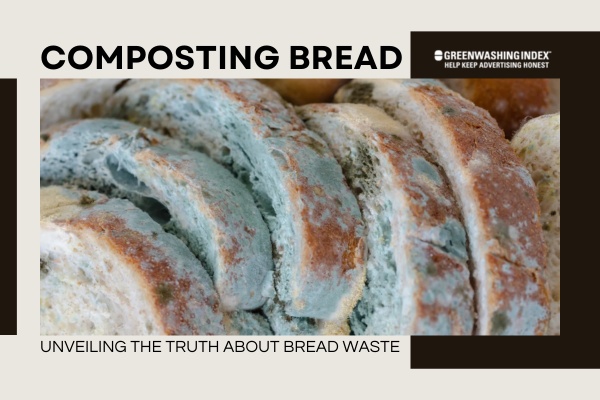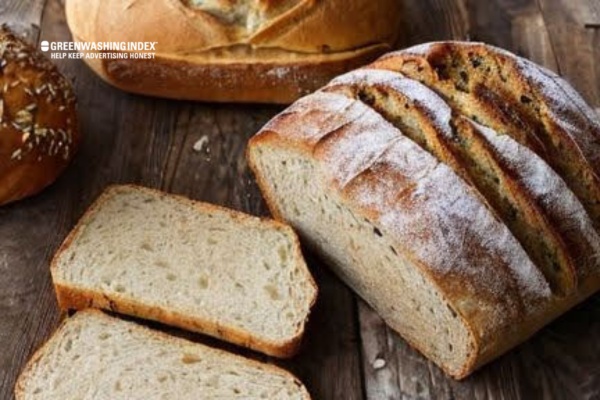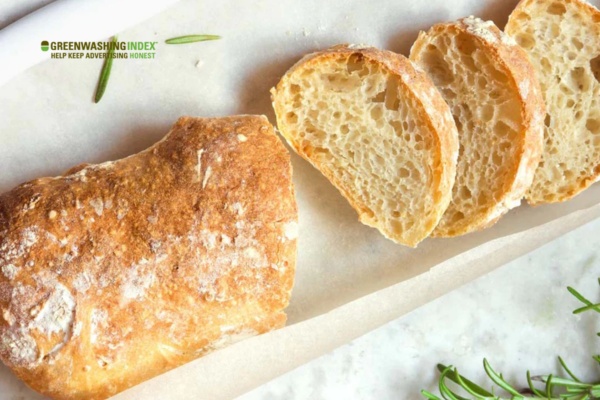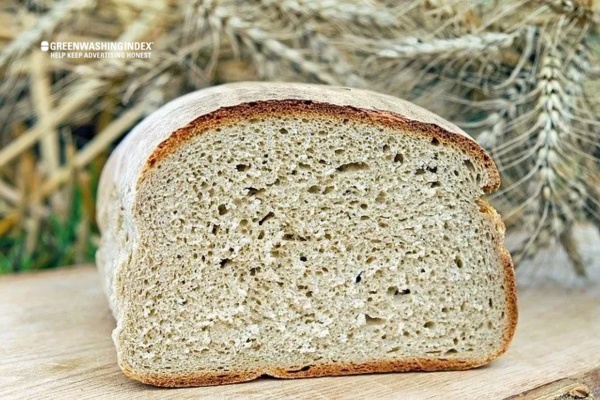

Composting bread might seem unconventional, yet it holds surprising potential for enriching your garden. Many people overlook stale bread, dismissing it as mere waste, but this common kitchen item can transform into a valuable resource for soil health.
By understanding the composting process and its environmental benefits, you can turn what was once considered trash into a treasure for your plants. With a few mindful practices, you can contribute to sustainability while enhancing your garden’s vitality.
You’re about to understand the real value of composting, particularly when it’s about bread waste. Research has shown that composting can significantly reduce landfill waste, and with bread being a common item in our trash, it’s an area worth exploring.

We’ll examine the fundamentals of composting and its impact on the environment, shedding light on how this simple act can make a big difference.
Before diving into the specifics of composting bread, it’s essential you grasp the fundamental value of composting itself. Composting is a natural process that turns your kitchen scraps, including various bread types, into rich, fertile soil. This process not only reduces the amount of waste you produce but also contributes to the health of your garden.
The act of composting your bread waste can have a profound impact on the environment, reducing landfill waste and contributing to soil health. This simple act is a powerful sustainability practice, significantly decreasing your ecological footprint.
When you compost, you’re taking a proactive role in waste management, transforming waste into a resource rather than adding to the landfill burden.
This not only reduces methane emissions, a potent greenhouse gas contributing to climate change but also enriches the soil, promoting plant growth and carbon sequestration.
As a result, emission reduction occurs on two fronts: directly, by avoiding methane production, and indirectly, by improving the soil’s capacity to absorb CO2. Composting bread waste, thus, becomes a compelling means to combat climate change and promote environmental health.
Composting is an effective way to recycle organic waste and enrich soil, but not all food scraps are suitable for composting. Bread, a common leftover in many households, often raises questions about its compostability.

While bread can be composted, there are specific guidelines to follow to ensure it decomposes effectively without attracting pests or creating odors. Understanding the right conditions for composting bread can help you contribute to a healthier environment while making the most of your kitchen scraps.
Yes, you can compost bread, but there are important considerations to keep in mind. Bread is an organic material that decomposes quickly and adds nitrogen to the compost pile. However, it is advisable to use stale or moldy bread rather than fresh bread, as stale bread breaks down more efficiently and is less likely to attract pests.
By following these guidelines, you can successfully incorporate bread into your composting routine, contributing to a more sustainable waste management practice while enriching your garden soil.
You might wonder how to compost bread efficiently. Let’s explore a comprehensive guide on the process, emphasizing the critical role bacteria and other organisms play. Understanding these elements will provide you with a more effective method to reduce bread waste through composting.
Let’s dive right into how one can efficiently compost bread, reducing waste and contributing to a healthier environment. Understanding the decomposition process is key.
Composting methods vary, but they all have the same principle: break down organic matter into nutrient-rich soil. Your bread waste, whether it’s whole grain or white, can be a valuable addition to your compost pile. Just remember, moderation is key.
Next, let’s delve into the role of bacteria and other organisms in this process.
Diving into the nitty-gritty of composting bread, it’s the bacteria and other tiny organisms that really do the heavy lifting. Bacterial diversity is crucial for breaking down bread. Different bacteria feed on the carbohydrates and proteins, accelerating the decomposition process.
Yeast involvement can also be beneficial as it hastens the process by fermenting the sugars present in bread. However, composting bread isn’t without challenges. The high moisture and nutrient content can lead to unwanted mold growth, which could be harmful if not managed properly.
Additionally, bread can attract undesirable insects. So, it’s essential to balance your compost pile with other organic materials to avoid these issues. Now, let’s transition into understanding the effects of composted bread on soil health.
As you consider the effects of bread on soil, it’s important to understand its nutrient content and the overall impact on soil health. Research shows that bread, rich in nitrogen, can enhance the fertility of the soil when composted correctly.

However, you must be aware of potential side effects, such as attracting pests or altering the soil’s pH level, which could potentially harm plant growth.
In your quest for sustainable living, you’ll find that composting bread, despite its high energy content, can contribute significantly to the nutrient content of your soil. The process of bread decomposition results in nutrient extraction, which enriches your soil. The dietary value of bread, along with baking variations, affects the type of nutrients released.
Now, let’s consider how your composted bread impacts soil health. Research shows that composting techniques using bread can significantly improve soil biodiversity. When bread, an organic waste, decomposes it enriches the soil with essential nutrients, acting as an organic fertilizer. This boosts the growth and diversity of microbes and other beneficial organisms, thus enhancing soil health.
However, waste management is crucial. Overuse of bread in compost can lead to soil contamination. Bread attracts pests and may contain non-organic additives harmful to soil.
Therefore, it’s important to balance your compost input, using bread sparingly and combining it with other organic materials. Composted bread, when used wisely, can be an effective tool in sustainable soil management.
Bread decomposition is an interesting process influenced by various factors, including environmental conditions and the type of bread. Understanding how long it takes for bread to decompose can help us appreciate the importance of food waste management and composting practices. Below is a detailed overview of the decomposition timeline for bread.
Initial Decomposition: Bread begins to decompose within a couple of days after being exposed to air. This process is accelerated in warm and moist environments, where mold can start to grow rapidly.
Complete Decomposition: Generally, it takes about 2 to 3 weeks for bread to fully decompose under normal conditions. However, this timeline can vary significantly based on several factors:
While bread can start decomposing within days, the complete breakdown process typically spans from a few days to several weeks, influenced by its type and environmental factors.
Molded bread isn’t ideal for composting because it can introduce harmful pathogens to your compost pile. These unwanted microbes could spread disease or attract pests.
Yes, you can compost bread. It decomposes quickly and adds nitrogen to the compost, but should be stale or moldy and buried in the pile to prevent pests.
Most types of bread can be added to compost, but it’s best to avoid heavily processed or enriched breads that might contain additives that aren’t environmentally friendly. Simple, organic breads are the best candidates for composting.
Composting bread presents a valuable opportunity to reduce waste while enriching garden soil. This practice not only diverts food from landfills but also enhances soil health through the decomposition of organic matter.
However, it is essential to be mindful of potential challenges, such as mold growth and pest attraction. By implementing proper composting techniques and balancing bread with other organic materials, one can effectively harness the benefits of composting bread while minimizing risks. Ultimately, this sustainable approach contributes positively to both the environment and gardening efforts.

Don't let aphids, slugs, and caterpillars ruin another plant. Take back control with simple, natural methods that actually work.